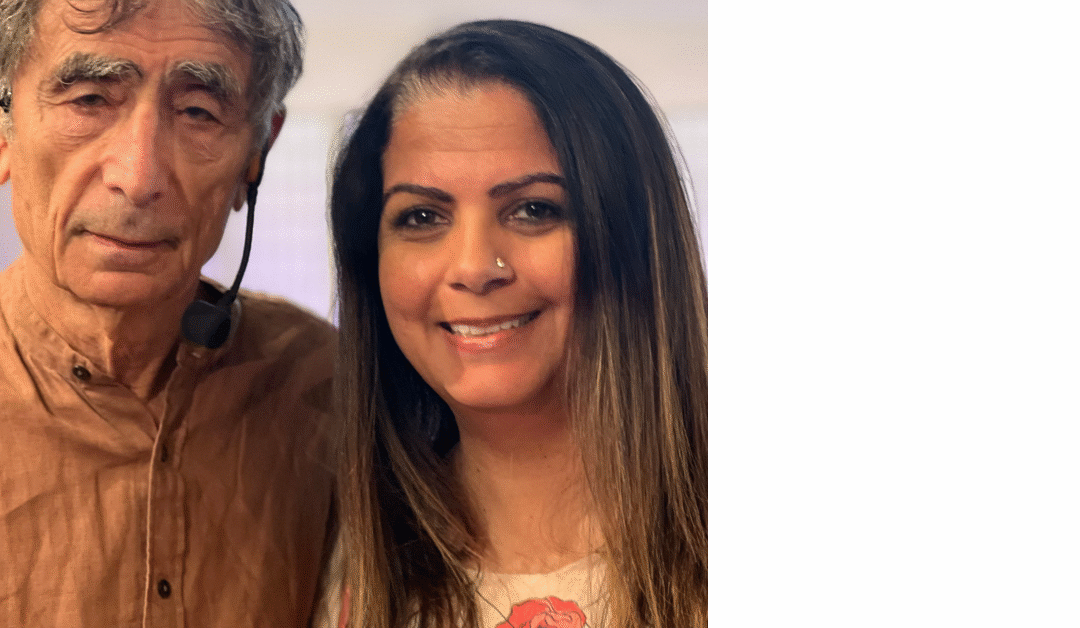A few months ago, I had the great honor to have in-depth conversations with world-renowned physician, author, and trauma specialist, Dr. Gabor Maté, on the topic of post-traumatic stress disorder (PTSD) and addiction and its lasting effects not just on the individual but from one generation to the next. Dr. Maté has spent decades studying and treating individuals struggling with addiction. His work challenges the traditional views on addiction and stereotypes, instead positing that trauma, particularly childhood trauma, is the fundamental root of addictive behaviors.
The Connection Between Childhood Trauma and Addiction
According to Dr. Maté, childhood trauma plays a pivotal role in the development of addiction. Trauma is not just the external events such as abuse, neglect, or violence, but also the internal processes that occur as a result of these experiences. These traumatic events can significantly impact a child’s brain development, particularly in areas related to emotional regulation and self-soothing mechanisms.
When children experience trauma, their brains may not develop the necessary pathways for healthy emotional regulation. As a result, they may turn to external sources such as drugs, alcohol, or other addictive behaviors to cope with their emotional pain. This maladaptive response is an attempt to soothe the suffering that originated from the trauma, rather than a moral failing or lack of willpower, as a lot of stereotypes assume.
Addiction as a Response to Pain
Dr. Maté defines addiction as “a compulsive repetition of behaviors that give pleasure and relief but create long-term problems with negative consequences.” He emphasizes that addiction is not the primary problem but rather a symptom of a deeper issue – the pain and suffering rooted in childhood trauma. This perspective shifts the focus from pathologizing the individual to understanding their behavior as an adaptive, though ultimately maladaptive, response to adverse childhood experiences (ACEs).
The Role of Environment and Society
Maté’s work also highlights the impact of societal and environmental factors on the development of addiction. He argues that modern society, with its demands and technical diversions, contributes to a toxic culture that exacerbates trauma and stress. This environment can lead to disconnection, which is at the heart of trauma. Reconnection, through compassionate self-examination and supportive relationships, is key to healing this trauma.
Critique of Traditional Approaches
Dr. Maté is critical of the traditional “War on Drugs” approach and the medical profession’s tendency to treat addiction as a brain disease. He believes that these approaches often fail to address the underlying trauma and can be harmful, as they ostracize rather than help individuals heal. Instead, he advocates for a compassionate and trauma-informed approach to treatment, recognizing that addiction is a treatable condition that requires understanding and empathy.
Healing Through Trauma-Informed Care
Maté’s approach to healing involves addressing the trauma directly. He recommends therapies such as Eye Movement Desensitization and Reprocessing (EMDR), which can help process childhood traumatic events and reduce compulsive behaviors. By developing new neural pathways and fostering a healthier sense of self, individuals can begin to heal from their traumas and overcome their addictions. EMDR therapy is one of my favorite forms of trauma therapy. I have incorporated it into my practice for two decades and have seen some amazing and effective results.
Dr. Gabor Maté’s teachings offer a profound shift in how we understand and treat addiction. By recognizing trauma as the root cause, we can move beyond punitive measures and toward compassionate, trauma-informed care. This approach not only offers hope for healing but also underscores the importance of supportive and nurturing environments in preventing and treating addiction. In his words, “Addiction is not the problem; it’s an attempt to solve a problem.” By addressing the underlying pain and trauma, we can help individuals reconnect with themselves and their world, paving the way for true healing and recovery.

